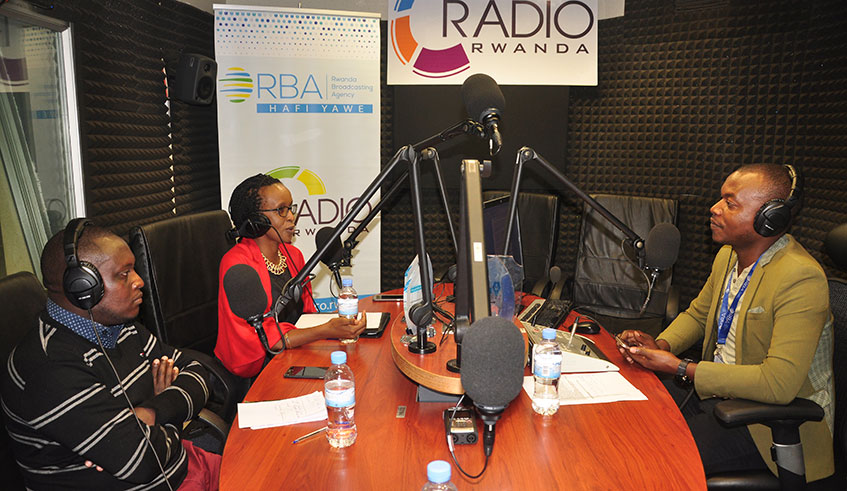FEATURED: The Every Voice Counts project is helping to tackle perceptions of negative masculinity preventing women to access public spaces.

Pro femmes Twese hamwe and Care International representatives in a Radio talk show during the EVC campaign.
